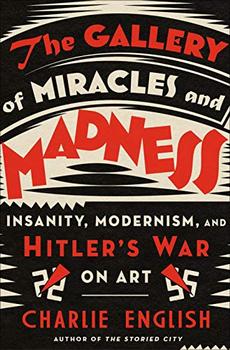Summary | Excerpt | Reading Guide | Reviews | Beyond the book | Read-Alikes | Genres & Themes | Author Bio

The Undercover Mission That Changed Our Understanding of Madness
by Susannah CahalanSusannah Cahalan's The Great Pretender is a fascinating deep-dive into one of the most influential studies in the history of psychology, Stanford University professor David Rosenhan's 1973 paper "On Being Sane in Insane Places." In an era of growing doubts about the validity of psychiatry, Rosenhan—the "great pretender" of the book's title—undertook to put the discipline to the test with a daring experiment. He and seven other volunteers pretended to be mentally ill and went undercover in institutions across the nation to see whether doctors and staff could tell the difference between the sane and the insane. Apparently, Rosenhan reported in his bombshell study, they could not.
As Cahalan's book explains, Rosenhan and the other "pseudopatients" arrived at a psychiatric hospital complaining of just one vague symptom—hearing voices that said "empty," "hollow" and "thud," language meant to evoke an existential crisis. All eight were admitted and diagnosed with either manic depression or schizophrenia. Although they behaved entirely normally once they were admitted, all eight remained institutionalized for at least a week. In fact, one pseudopatient was hospitalized for a full 52 days. "The facts of the matter are that we have known for a long time that diagnoses are often not useful or reliable, but we have nevertheless continued to use them," Rosenhan concluded. "We now know that we cannot distinguish sanity from insanity."
The study sent shockwaves through the field of professional psychiatry. "It was a landmark study that shook us all—it created a crisis of confidence," Cahalan quotes one psychiatrist as saying. Largely in response to Rosenhan's challenges, the American Psychiatric Association completely revamped its diagnostic manual, replacing the vague psychobabble of the Freudian tradition with itemized checklists and strictly defined criteria meant to standardize diagnoses and preclude the sort of embarrassing mistakes doctors had made in the pseudopatient study.
But while the extent of Rosenhan's influence on the field is clear, it turns out that little else about his story is straightforward. As the book unfolds, it becomes evident that there is yet another layer of meaning to its title—neither Rosenhan nor the details of his study are quite what they appear to be. "The harder I fought to make sense of it, the more I realized that Rosenhan and his study were like quicksand," Cahalan writes. "Whenever you felt that you were on solid ground, the support would fall away, leaving you in the dark muck and sinking fast."
The Great Pretender recounts Cahalan's dogged efforts to pin down the details of the story. It's a task complicated by secrecy: All of the pseudopatients are identified only by pseudonyms, even in Rosenhan's notes. Matching Rosenhan to his pseudonym proves easy, but uncovering the real identities of the other pseudopatients takes on the proportions of a detective case. Fortunately, Cahalan, a former investigative reporter for the New York Post, is both an able sleuth and a gifted writer with a knack for holding the reader's interest.
She tracks down Rosenhan's son, former students, friends, associates, colleagues and secretaries, spending hours on the phone and sending hundreds of emails. She sifts through notes, letters, diary entries, medical records and a 200-page unfinished book manuscript. In the process, she uncovers some troubling discrepancies—details in Rosenhan's published paper that don't seem to square with his notes, numbers that don't add up. Some may be sloppy errors or oversights. Others seem like deliberate attempts to deceive.
Cahalan makes a convincing case that, at the very least, Rosenhan's study was seriously flawed. Yet at the same time, she concludes, his work contains a core of truthfulness. "I believe that he exposed something real," Cahalan writes in her epilogue. "Rosenhan's paper, as exaggerated, and even dishonest as it was, touched on truth as it danced around it." That truth has to do with larger questions about how to draw the line between mental illness and physical disease; about the urgent need to rethink how we treat people with psychiatric conditions; about how the labels we use to describe illness color our perceptions of patients.
These are issues that Cahalan has thought deeply about because of her personal history with an illness that blurred the boundary between the mental and the physical. As a young woman in her twenties, Cahalan was misdiagnosed with schizophrenia after falling ill with autoimmune encephalitis, an inflammatory disease in which the body's immune system attacks brain cells and causes symptoms that mimic those of a mental illness—an experience she chronicled in her first book, Brain on Fire.
Cahalan's personal investment in her topic gives her writing a passion and sense of urgency that is refreshing. In places, however, the book can feel unfocused. "This was not the book I initially intended to write," Cahalan notes in her Acknowledgments. At times, that shows. Cahalan weaves Rosenhan's story into larger digressions on the vexed history of psychiatry, from the horrors of the insane asylums of the past to the anti-psychiatry movement that led to the shuttering of mental institutions across the nation. There is much that is thought-provoking in these discussions. However, the different strands of the book don't always feel like they fit together—as if Cahalan didn't want whatever original research she started out with to go to waste and so decided to throw it all in anyway.
This lack of focus is especially noticeable towards the end of the book, where she discusses today's failed health care system, which all too often funnels the mentally ill into prisons and homeless shelters. While the issues she raises here are tremendously important, they don't connect neatly with the overarching themes raised by the Rosenhan study, which have to do with the validity of psychiatric diagnoses. Perhaps, however, this messiness is fitting for a book about psychiatry, a field where few concepts or categories are neat and tidy.
![]() This review was originally published in The BookBrowse Review in January 2020, and has been updated for the
July 2020 edition.
Click here to go to this issue.
This review was originally published in The BookBrowse Review in January 2020, and has been updated for the
July 2020 edition.
Click here to go to this issue.

If you liked The Great Pretender, try these:

The Gallery of Miracles and Madness
by Charlie English
Published 2021
The untold story of Hitler's war on "degenerate" artists and the mentally ill that paved the way for the Holocaust.

by Robert Kolker
Published 2021
The heartrending story of a midcentury American family with twelve children, six of them diagnosed with schizophrenia, that became science's great hope in the quest to understand the disease.
The secret of freedom lies in educating people, whereas the secret of tyranny is in keeping them ignorant
Click Here to find out who said this, as well as discovering other famous literary quotes!
Your guide toexceptional books
BookBrowse seeks out and recommends the best in contemporary fiction and nonfiction—books that not only engage and entertain but also deepen our understanding of ourselves and the world around us.